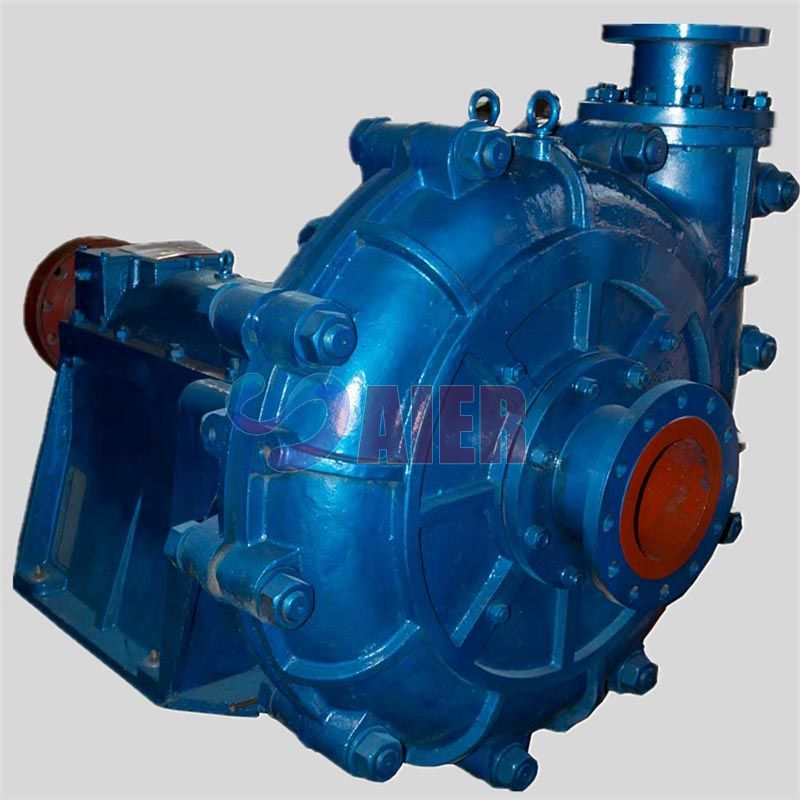Juil . 28, 2024 21:20 Back to list
Understanding the Functionality and Applications of Centrifugal Slurry Pumps in Industrial Settings
Understanding the Centrifugal Slurry Pump Applications and Benefits
Centrifugal slurry pumps are essential components in various industrial applications, particularly in the mining, mineral processing, and construction sectors. These pumps are specifically designed to handle the transportation of mixtures that contain a significant amount of solid particles, making them ideal for scenarios where traditional pumps would struggle due to clogging or wear.
Design and Functionality
The core principle behind centrifugal slurry pumps is the conversion of rotational kinetic energy, provided by a motor, into hydrodynamic energy. The pump consists of an impeller that spins, pushing the slurry fluid through a volute casing. This design allows for the effective movement of abrasive materials, including sand, gravel, ore slurries, and more.
One of the key features of centrifugal slurry pumps is their robust construction
. These pumps are typically made from high-chrome alloys or rubber linings to resist wear and corrosion caused by the abrasive nature of the transported materials. The pump's design also comprises a large inlet and outlet, enabling the easy passage of both the liquid and the suspended solids, thereby minimizing blockages.Applications
Centrifugal slurry pumps have a wide array of applications. In the mining industry, they are primarily used for the transfer of slurry from the crushing circuit to the separation process. This process may involve the transportation of tailings, which are the materials left over after the extraction of valuable minerals. The efficient movement of these slurries is crucial for maintaining production rates and ensuring operational efficiency.
centrifugal slurry pump

In the construction sector, these pumps are utilized for dewatering applications, where they help to remove excess water mixed with soil or sand during excavation and foundation work. This is particularly important in ensuring the stability of building sites and preventing delays due to waterlogging.
Additionally, in the wastewater treatment industry, centrifugal slurry pumps assist in transporting sludge, which is a byproduct of sewage treatment processes. Employing these pumps in such applications ensures that thickened sludge can be efficiently moved to further treatment phases.
Advantages
The advantages of centrifugal slurry pumps are manifold. Their ability to handle high concentrations of solids without clogging makes them superior to conventional pumps, which often require regular maintenance and can lead to expensive downtime. Furthermore, the high efficiency achieved through their design minimizes energy consumption, translating to cost savings over time.
Another significant benefit is their adaptability. Centrifugal slurry pumps can be adjusted for various applications by changing the impeller size or using different materials for pump construction based on the characteristics of the slurry. This flexibility allows industries to customize their pumping solutions to suit specific operational requirements.
Conclusion
In conclusion, centrifugal slurry pumps play a pivotal role in many industrial processes. Their design, capable of handling abrasive materials, ensures efficient transportation of slurries in various settings, from mining to wastewater treatment. The advantages of these pumps, including durability, efficiency, and adaptability, make them an indispensable tool in modern industrial operations. As industries continue to expand and evolve, the reliance on centrifugal slurry pumps for effective and reliable slurry management will undoubtedly increase.
-
High Quality Slurry Pump Seals Reliable China Suppliers & Manufacturers
NewsJun.24,2025
-
High Quality Portable Submersible Slurry Pump Supplier & Manufacturer from China
NewsJun.10,2025
-
Slurry Pump Parts Manufacturer – High Quality Rubber Spare Parts from China
NewsJun.10,2025
-
High Quality 1/3 HP Submersible Sump Pump with Vertical - Reliable Supplier & Factory Price
NewsJun.10,2025
-
High-Efficiency Centrifugal Slurry Pumps India
NewsJun.10,2025
-
High Quality Warman Centrifugal Slurry Pump Suppliers & Factory
NewsJun.10,2025
